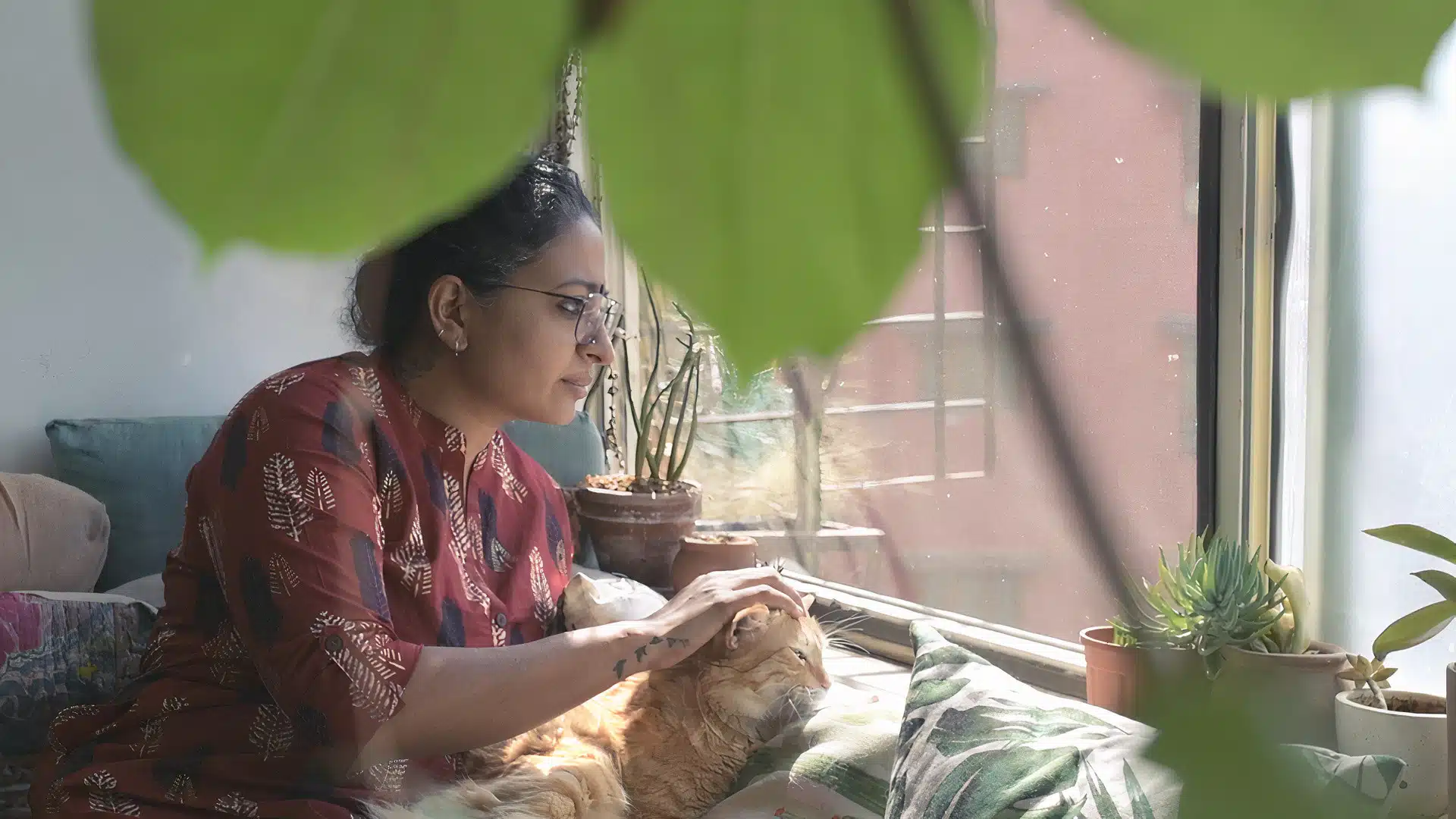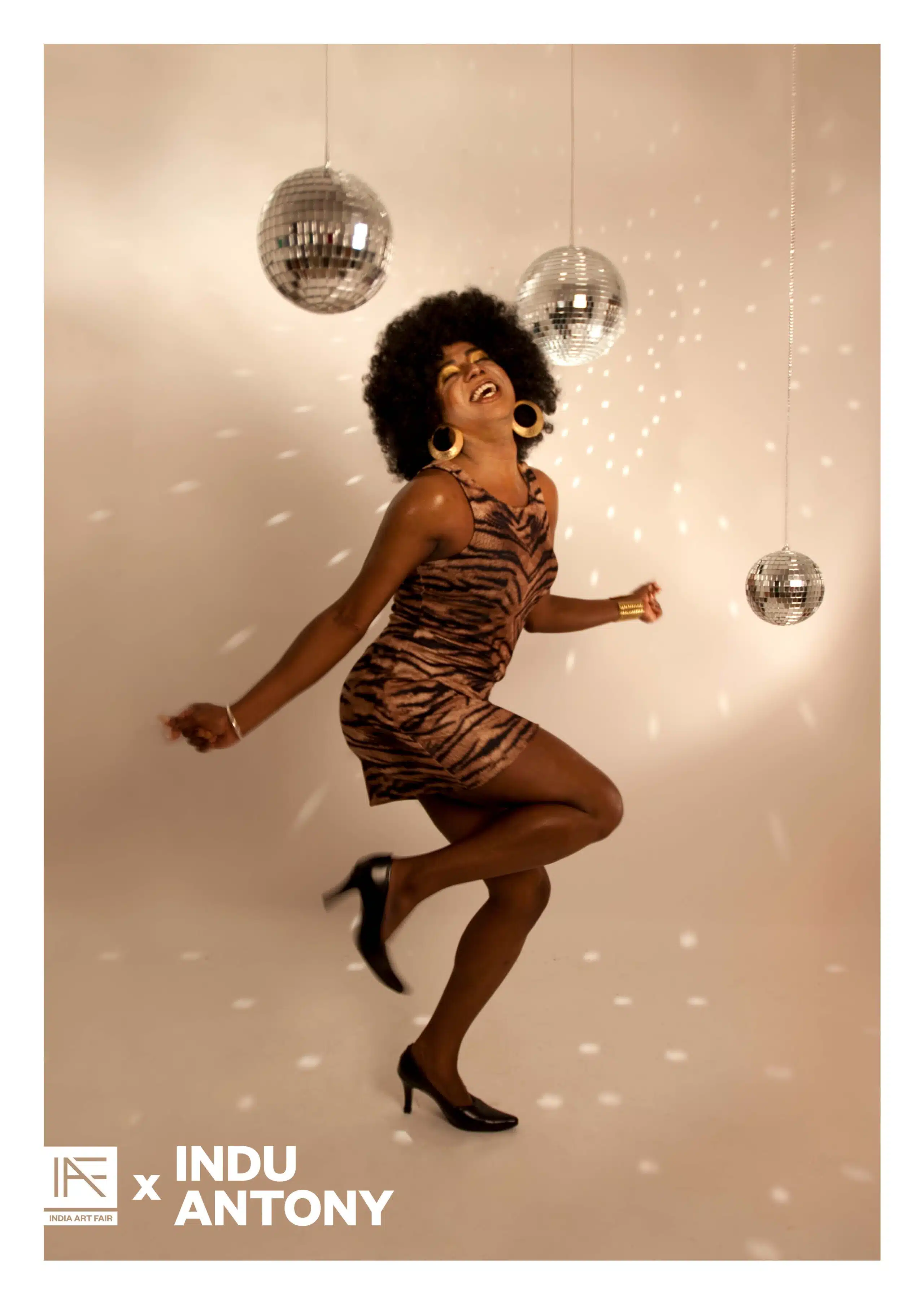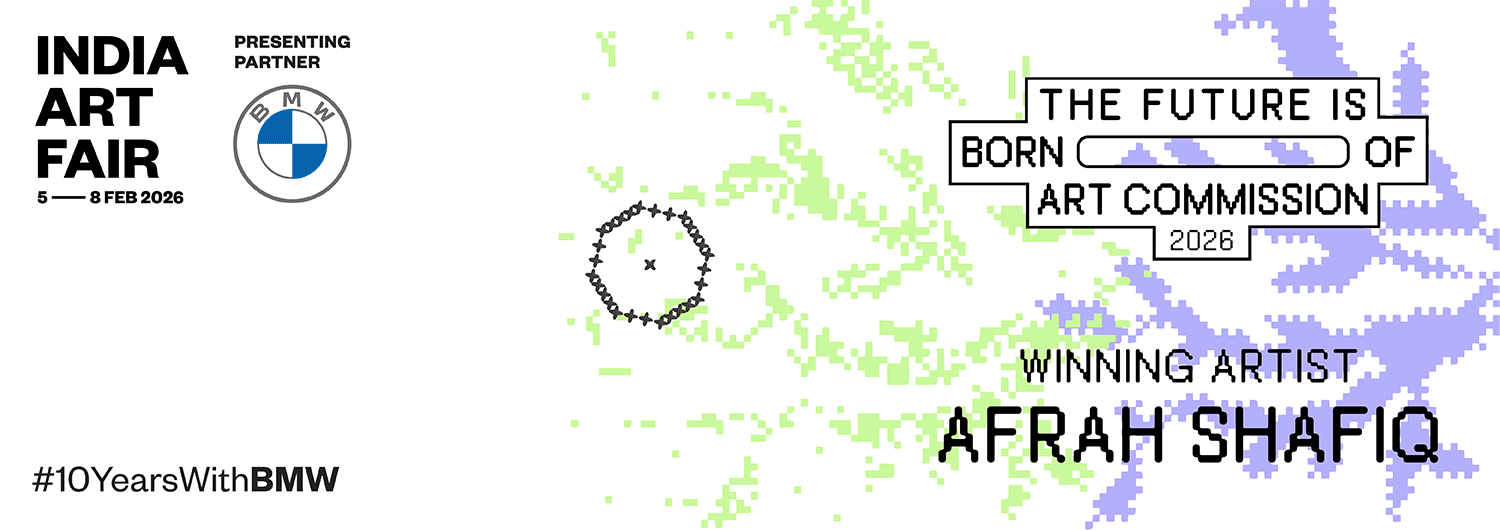“I am a stickler for routine,” Indu Antony says. “I am up by 4am to feed the cat, water the 400 plants I have collected over the years, and brew my coffee, which I am very particular about.” Born in Thrissur, Kerala, Antony now lives in Bangalore, where she works between her home-studio and Kanike, the community arts centre she co-founded in 2019.
Antony creates spaces to discuss difficult topics. “I felt uncomfortable about certain things, and I wanted to find a way to speak about them,” Antony tells us. This applies to both her work that explores gender, social justice and public access rooted in her communities, and Kanike which serves as a space for not just artists but people from around the neighbourhood, and people who would not otherwise be involved in arts spaces. Here, Antony also spends time with women and children from anganwadis or child daycare centers in the area, spending leisure time with them, playing games and swinging on swings. “There are no public spaces in my area that anyone other than cis-hetero men can freely use,” Antony says, explaining the rationale behind Kanike.
The artist brings back these shared experiences of the city to her home-studio, which for her is like a “3D moodboard”. “I am always walking around the city and its markets,” she says, “collecting objects that I could potentially use for my work. All the materials in my studio are arranged in such a way that I can pick through them whenever I have an idea. It is a museum of sorts.”
Download artist poster here >
Antony begins with an idea. “For me, the concept comes first and I choose the medium after that,” she says. It is equally important to present her ideas and work in ways that directly engage the communities that surround her. “I am conscious that my art should appeal to people beyond a certain section of society who have read the ‘right’ books and have the ‘right’ education,” she explains. “The aim is to make works that speak to not just the people who visit galleries, but also the everyday person who lives in, say, my lower middle class Bangalore neighbourhood.”
Known for her series of staged photographs created in the beginning of her career, Antony has been exploring new mediums in recent years. “I stopped actively making digital photographs four or five years ago. I was having a resistance to the quickness of the medium,” she says. “Instead, I wanted to work with mediums that allowed me to be slower, repetitive and more meditative. I started making my own salt prints, a centuries-old way of developing prints, each of which took 8 hours to make, and I made 83 of them!” For Antony, the slower analogue processes meant more control over every element and every gesture. She says, “The longer the process the more exciting it is for me. I want to create the space for myself to question every material I am touching, and question why I am using anything I am using. Everything has to work in harmony, only then does the work start falling into place.”
“I am conscious that my art should appeal to people beyond a certain section of society who have read the ‘right’ books and have the ‘right’ education.”
Through her career beginning with the bold staged photographs and her more recent multi-media installations, gendered life and gender-based violence has been a central theme. In her project about eve-teasing, Names They Called, for instance, Antony takes words used derogatorily against women and stitches them on cloth with her own hair as the thread. The works become quiet recuperations of words with sexual overtones used to objectify women, like the Malayalam word kambi literally translating to ‘iron rod’ or charakku meaning a ‘cauldron’ or a ‘consignment good’. Antony says, “I am somebody who does not forget. I had been collecting my fallen hair for 7 to 8 years, and one day started using it to stitch. Hair was the perfect medium and metaphor to rewrite about these memories.”
Antony is currently working on creating a ‘smell map’ of Bangalore — a physical archive of the particular smells of the city, captured in the form of a book with no visuals. She is also currently working with Bangalore art institutions like the brand new Museum of Art and Photography to interpret their extensive collections, and Mazhi Books, with whom she is organising a three-month long zine festival. She is also in the process of opening Namma Katte, a corner shop in her neighbourhood for food, art and community.
Indu Antony lives and works in Bangalore, is the founder of Kanike Studio and Mazhi Books, and will be showing her newest works at India Art Fair 2022. Her downloadable artist poster features a staged photograph from her series on drag queens titled, Bitch, Please!.




